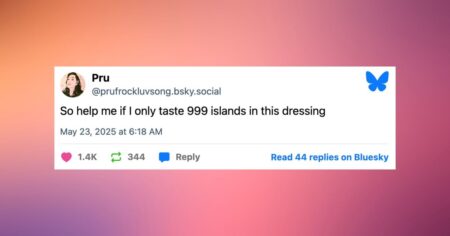Robert F. Kennedy Jr., a man who just a few weeks ago told the American people, “I don’t think people should be taking medical advice from me,” is now dishing out vaccine recommendations for pregnant people and children.
You’ve likely heard about the video he posted on X, formerly Twitter, which was accompanied by the caption “today, the COVID vaccine for healthy children and healthy pregnant women has been removed from [the Centers for Disease Control and Prevention] recommended immunization schedule.” Going against Kennedy, though, the CDC on Thursday published its new recommendations and still suggest the vaccine for children. But, in line with Kennedy’s X announcement, the COVID vaccine is no longer recommended for pregnant people, according to the CDC website.
This is all confusing — and, particularly if you’re pregnant, it’s only natural to be worried. But it’s not currently clear what this will actually mean for the vaccine come fall when the new formulation is available.
Reproductive rights are under attack. HuffPost is committed to reporting the truth, amplifying voices, and covering this fight with depth and care. Support our work by joining our membership program today.
“The first thing I do want to tell every reader is that the ACIP, or the Advisory Committee on Immunization Practices, is still going to meet in June, and I think this is important to remember because although RFK sidestepped really what is a decades-long practice of having independent reviewers review all the science and then make a vaccine recommendation … the ACIP could potentially disagree with RFK’s blanket statement,” Dr. Anita Patel, a pediatric critical care doctor in Washington, D.C., told HuffPost.
Also, since Kennedy did not qualify this change with science-backed reasoning, Patel is hopeful that this decision could be overturned. Suffice to say, you shouldn’t panic, but you should take this threat seriously.
Doctors spoke with HuffPost about why this move is dangerous, what you can do to advocate for vaccine access and how to stay healthy if you can’t get the jab come fall:
First things first: A COVID infection is more dangerous for pregnant people and babies.
Kennedy’s announcement of the removal of the COVID vaccine from the recommended vaccination schedule for pregnant people and children is a strange move for many reasons.
“When we really look at who would benefit from COVID vaccines, we do really see value in continuing to vaccinate pregnant women and babies, particularly young children who have never had a primary series,” said Dr. Lori Handy, the associate director of the Vaccine Education Center at the Children’s Hospital of Philadelphia.
The vaccine is important for pregnant people because they’re immunocompromised during pregnancy, Handy said. More, “when pregnant, the physiology of how your heart and your lungs work changes because [your body] redirects a lot of your blood flow to the placenta to support the fetus, and that makes COVID infection more risky for pregnant moms,” Handy added.
Beyond the health of the pregnant person, the COVID vaccine also benefits the growing fetus. When a pregnant person gets vaccinated, they then pass those antibodies on to the fetus, she noted. “And we know that children under 1 are hospitalized at rates second only to people over age 75. So, they’re the second most hospitalized group to the elderly, which really states just how significant the infection is for babies and how important it is to get them protected,” Handy said.
The COVID vaccine also reduces the risk of stillbirth and preterm labor, Patel said.
Get in touch with your elected officials to voice your frustrations.
“[People who] really want to continue to have access to vaccines, the key thing they could do right now, actually, is talk with their local, state and federal legislators, let them know” Handy said.
“Please advocate for us and help protect this resource, because we want to have it available even if the guidance changes. … We want to make sure that vaccines stay available for all of the people that want it,” Handy said.
Your voice matters, and this fight isn’t over, Patel said.
“It is also important to remember that the representatives, whether it’s a congressperson or a senator, they work for you,” Patel noted.
You can directly call or email your elected officials and let them know you aren’t going to vote for them again if they don’t fight against the COVID shot restrictions.
“So, using language that is very literal and deliberate, saying ‘I will not vote for you if you support this decision to rescind the recommendation regarding COVID-19 vaccinations for pregnant individuals and people under 65,’” Patel said.
“And I really, I really believe in this process, because although we haven’t been able to overturn everything, there has been a lot of movement in these executive orders and unlawful announcements, and that is because of the voice of the American people,” she said.
Patel added that the Trump administration is trying to upset us.
“They are trying to paralyze us so that we can’t act, and if us as a society and us as a populace in America allow them to do that, we will lose our voice. But if we continue to push back, we will not,” Patel said.
FatCamera via Getty Images
If you do want a COVID shot, there may be some loopholes.
“With regard to pregnant individuals, although the administration has taken the stance against vaccinating pregnant persons against COVID, their doctor, whether it’s their OB or their primary care doctor, can still say ‘My patient is at high risk for adverse outcomes secondary to COVID-19, and therefore it is medically indicated for this patient to receive the vaccine,’” Patel said.
“And the truth is that RFK actually allowed for that loophole in his announcement when he said that they will continue to cover the vaccine for vulnerable populations,” Patel said, and added that inactivity is one of the underlying conditions that can make you eligible for the jab. “So there are a lot of underlying conditions that people may not even realize are on that list.”
This administration is creating lots of chaos with its inflammatory and scary decisions, but “those decisions haven’t necessarily trickled down yet into a sphere in which they are appreciably affecting people’s ability to get the vaccine,” Patel said.
“I can’t say what’s going to happen once the ACIP has met, but at this moment in time, children can still get the COVID-19 vaccine … and as long as an OB-GYN appropriately justifies the indication for the COVID-19 vaccine for pregnant persons, that pregnant person should still be able to get it,” Patel noted.
If your doctor does not agree to give you a COVID-19 vaccine, Patel recommends that you seek out a second opinion.
If you can’t get a COVID vaccine this fall, here’s what you can do to protect yourself.
There are things you can do to protect yourself if a worst-case scenario unfolds and pregnant folks aren’t able to get the COVID-19 vaccine come fall.
“If you are in any way at risk of a more severe outcome from respiratory infections, wear a mask when you go to crowded places,” Handy said. You should also practice good hand hygiene — washing your hands regularly and using hand sanitizer when you’re out and about.
“People should worry about COVID, but also flu, rhinovirus, all of these infections can make people, particularly pregnant people or immunocompromised people, very ill, and we want to keep those people safe,” Handy added.
When it comes to keeping babies, and particularly newborns, safe, Handy said she tries to “surround them, essentially cocoon them, with other healthy people.”
This may look like turning away a sniffling babysitter or leaving a friend’s house when you notice their coughing 2-year-old.
“Trying to stay around healthy people is just logistically hard in a busy life, but it does protect your child, particularly during winter seasons, when a lot more viruses circulate,” Handy said.
It’s also important to get all of the other recommended vaccines for your baby on time, Handy noted. You can ask your pediatrician any questions you have about vaccines, “but just recognize when your health care provider makes a recommendation for a vaccine in the first week of life, for a vaccine at 2 months of life, that is really done to give the baby the most protection they can. And changing that schedule or delaying just increases the time that that baby’s at risk,” Handy said.
“So, if we do face a world where baby can’t have COVID protection, making sure they’re protected from every single other thing, and then practicing those good infection prevention practices, is really the best we’ll be able to do,” Handy noted.
Read the full article here








